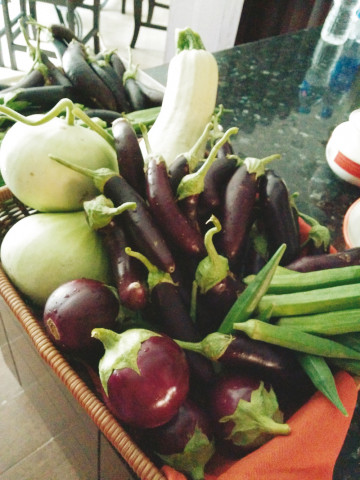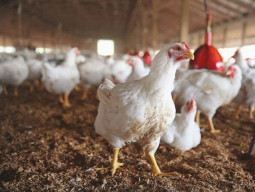
Gone are the days when the term khaalis meant something. Today, butter is more calorific than nutritious, ghee is more glutinous than tasty, and the scent of fresh fruit and vegetables is unheard of, at least in the urban areas of Pakistan.

Your grandmother might be acquainted with the key to pure dairy products, but to acquire purity in herbs and vegetables, you need to ‘go organic’ – a natural and healthy way to grow produce for your personal consumption. Once seen as something practiced only by health fanatics, organic gardening is no longer ‘just another fad.’ Organic produce is still largely an alien concept in Pakistan. Seema Khuled, a horticulturist in Lahore, believes that since organic items remain on the most expensive shelves in stores, people are under the impression that going ‘organic’ is a meaningless luxury.

“Organic gardens are gardens where synthetic fertilisers and pesticides are not used,” comments Khuled. “Growing food organically is the need of the day. On individual level, we can grow most of our vegetables and herbs in spaces available in our homes and settle for a marginally low yield, which is healthy and favourable.”

Khuled has grown most of the herbs and vegetables in her garden in plastic crates, which can be placed anywhere in the sun and on the rooftop, terrace and balconies. “I am trying to promote organic kitchen gardening, which I personally believe is not an expensive venture in the east,” she suggests. “Using heirloom seeds, saved season after season, and inexpensive organic farmyard manure, instead of using synthetic fertilisers and pesticides is the best way to breed an organic kitchen garden.”

Aneela Chaudhary started gardening as a hobby, but the passion grew with time and in 2011, she had her own organic garden by the name of ‘Potager – the Organic Garden’. “I grow as many seasonal vegetables as I can with success; certain exotic vegetables and herbs as well,” she says. For Islamabad-based Fauzia Hashmi, seeing “the amount of pesticides used in crops is alarming.” So, two years back, her quest for an organic kitchen garden made possible the growth of healthy vegetables and herbs.

Khuled says she prepares her organic compost from her kitchen scraps, which include egg shells, vegetable and fruit peels and used tea leaves, in a bucket enclosed within a lid. Besides this, she uses natural pest repellents, such as basil, garlic, marigolds and other such plants to help maintain her garden pest-free yet organic. Hashmi, however, uses natural cow manure and neem leaves for pest control.
Chaudhary says, “Organic vegetables are a bit expensive, but as an organic gardener, I have realised they are asking for fair prices. Organic kitchen farmers tend to the crop on their own and sometimes discard the whole plant if it is diseased. But at the end of the day, you’re eating healthier vegetables.”

For Hashmi, this task is cheaper, as she doesn’t have to buy any chemical fertilisers and pesticides and mostly rely on the residue. “We cannot control other factors, but at least, we can do what is in our hands. Have you noticed how our lifestyle has changed? From having a natural diet full of vegetables, fruit and fibre, we rely on food full of carbohydrates, white flour, and inorganic meat.”
Published in The Express Tribune, September 27th, 2014.
Like Life & Style on Facebook, follow @ETLifeandStyle on Twitter for the latest in fashion, gossip and entertainment.


















COMMENTS
Comments are moderated and generally will be posted if they are on-topic and not abusive.
For more information, please see our Comments FAQ